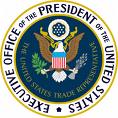 Here is the Trump administration’s draft notice of intent to renegotiate NAFTA, which was put out by Inside U.S. Trade. The administration says many elements of the agreement as it currently stands are “clearly outdated,” and that FTA provisions on intellectual property rights have been “improved in newer trade agreements.”
Here is the Trump administration’s draft notice of intent to renegotiate NAFTA, which was put out by Inside U.S. Trade. The administration says many elements of the agreement as it currently stands are “clearly outdated,” and that FTA provisions on intellectual property rights have been “improved in newer trade agreements.”
A few excerpts of interest to readers of this blog follow. These are what are listed in the letter as “specific negotiating objectives.”
Intellectual Property Rights:
- Seek to establish standards to be applied in NAFTA countries that build on the foundations established in the WTO Agreement on Trade Related Aspects of Intellectual Property Rights and other international intellectual property agreements, such as the World Intellectual Property Organization (WIPO) Copyright Treaty, the WIPO Performances and Phonographs Treaty, and the Patent Cooperation Treaty;
- Seek to secure fair, equitable and nondiscriminatory market access opportunities for U.S. persons that rely on intellectual property protection.
- Where appropriate, seek commitments from the NAFTA countries to strengthen their laws and procedures on enforcement of intellectual property rights, such as by ensuring that their author4ities have authority to seize and destroy pirated and counterfeit goods, equipment used to make such goods, and documentary evidence.
- Seek commitments from the NAFTA countries to: (1) strengthen their measures that provide for compensation of right holders for infringements of intellectual property rights, and (2) provide for criminal penalties under their respective laws that are sufficient to have a deterrent effect on priacy and counterfeiting.
…
Digital Trade, and Cross-Border Data Flows:
- Seek commitments from the NAFTA countries not to impose customs duties on digital products or unjustifiably discriminate among products delivered electronically.
- Seek to ensure that the NAFTA countries refrain from implementing measures that impede digital trade in goods and services, restrict cross-border data flows, or require local storage or processing of data, including with respect to financial services, and that where legitimate policy objectives require domestic regulations that may affect such trade or flows, obtain commitments that any domestic regulations are the least trade restrictive, non-discriminatory, and transparent and promote an open market environment.
…
In addition we will take into account other U.S. objectives including, but not limited to, the protection of health, safety, environment, essential security, and consumer interests.




